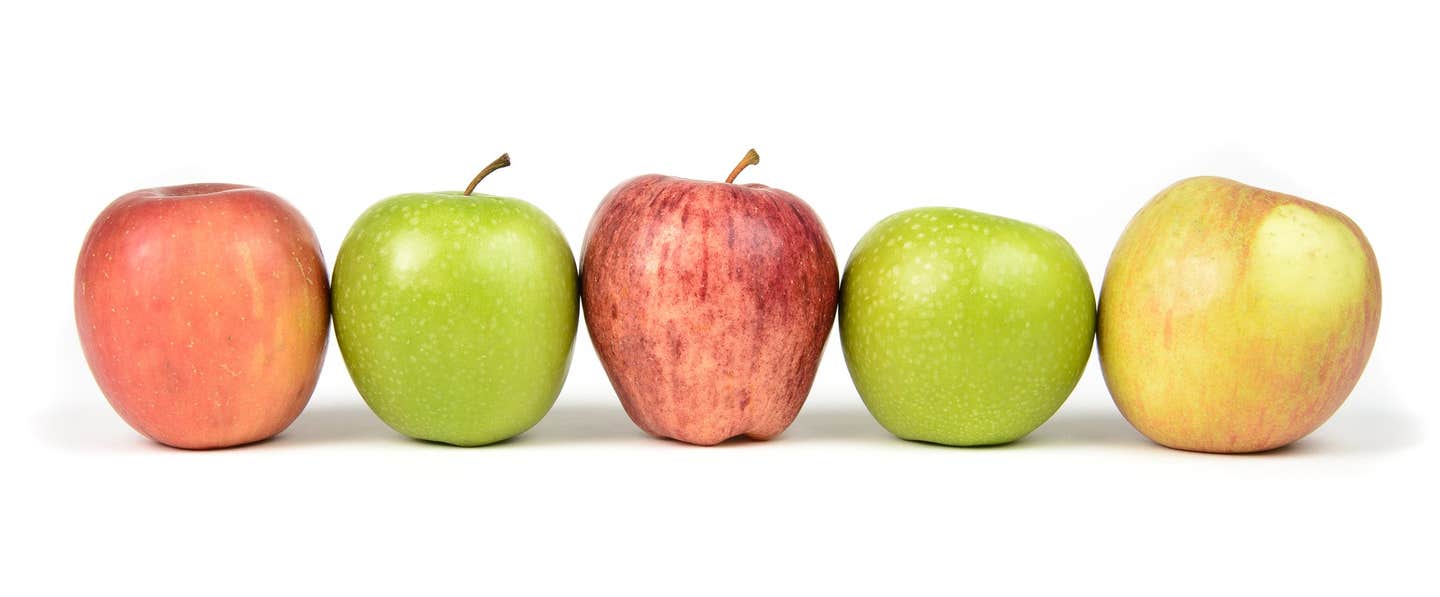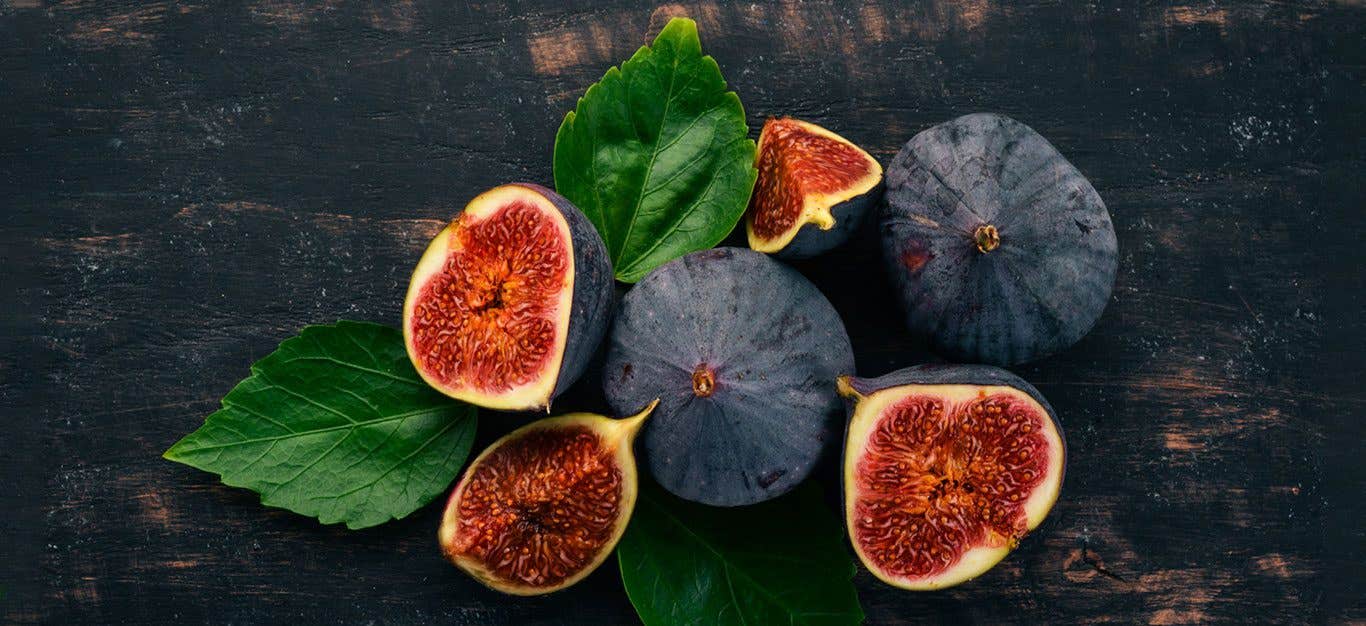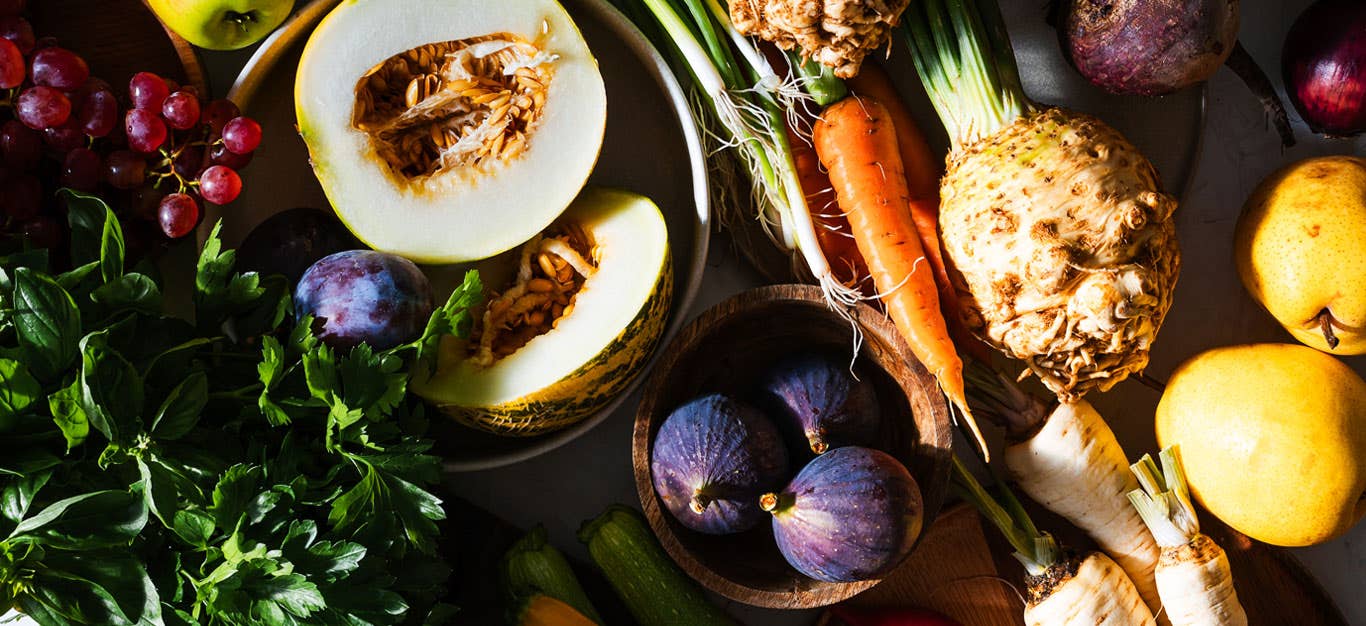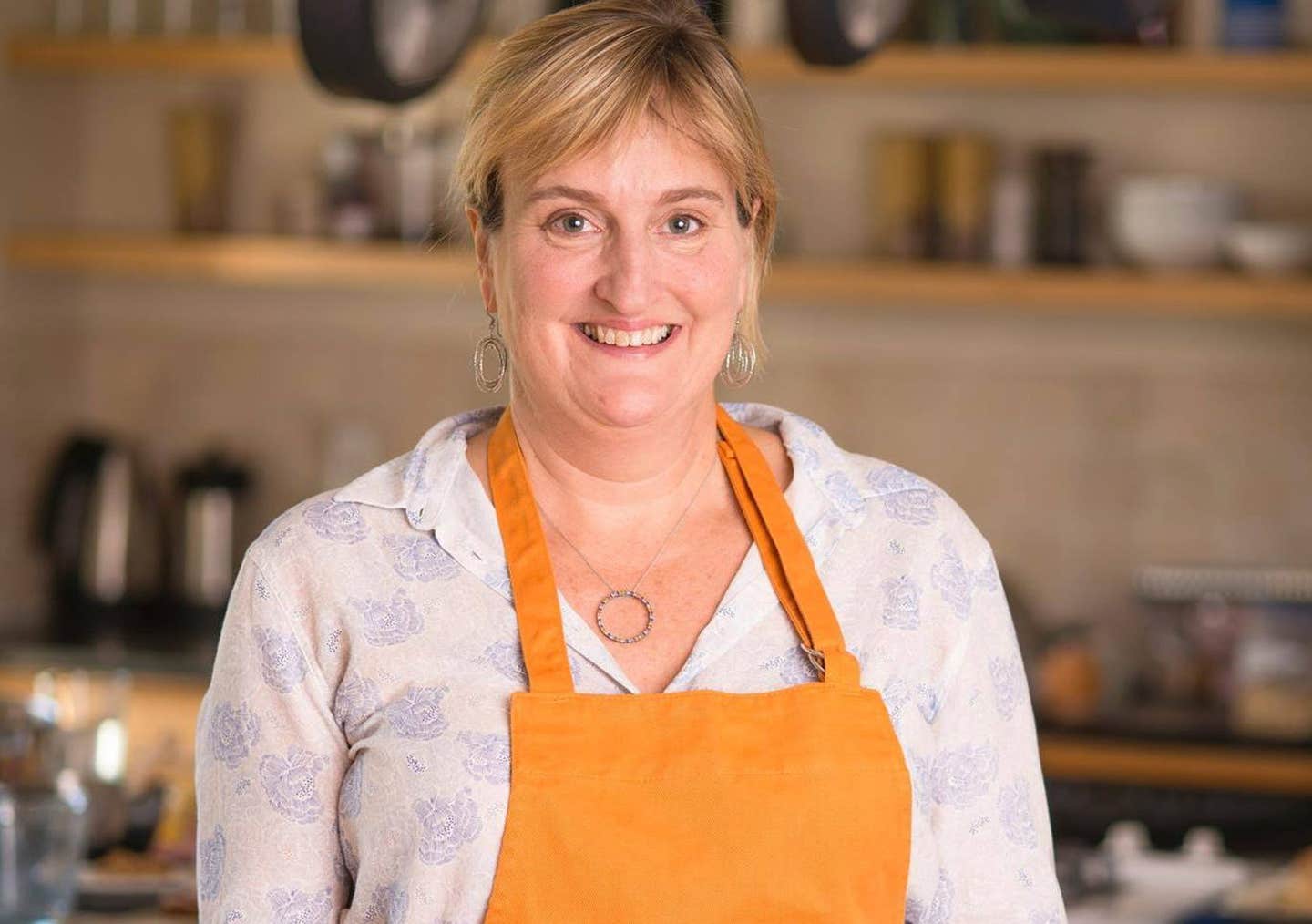From porch decorations to pie fillings, pumpkins rule the fall produce landscape. Here’s how to pick, prep, and cook the gorgeous gourds that are everywhere in autumn.
Pumpkin or Squash?
First, let’s clear something up: Pumpkin is just what we call some cultivars of winter squash. While all pumpkins are squash, not all squash are pumpkins. If that seems confusing, rest assured that pumpkins and most other types of winter squash can be used interchangeably in recipes.
Selecting a Pumpkin
Look for smaller cooking pumpkins that are sold alongside other winter squash. Big Halloween pumpkins are pretty, but they don’t have much flavor and can be watery or stringy when cooked. Know how much you need: 1½ pounds of fresh pumpkin will yield about 1½ cups of pumpkin puree, which is about the same amount as a 15-ounce can of pumpkin.
Types of Pumpkins for Cooking and Baking
There are more than 140 types of pumpkin. While all pumpkins are technically edible, some—such as the Connecticut field kind commonly used for jack-o’-lanterns—are tough, stringy, and not ideal for cooking and baking purposes. Here are some of the best types of pumpkin to use in the kitchen.
Sugar Pie
Also known as sweet pumpkins or pie pumpkins, these petite gourds have smooth flesh that’s perfect for purees and—you guessed it—pies.
Red Kuri
Though Red Kuri closely resembles a Halloween pumpkin, it is technically another type of squash altogether. Red Kuri has a nutty flavor and buttery flesh; when roasted and pureed, it can serve as a base for silky soups. Red Kuri also has a major advantage in the kitchen: Its skin is totally edible. Just slice, season, and roast it for a simple fall side dish.
Cinderella
This large heirloom variety has thick walls of deep orange flesh, making it an excellent choice for roasting or stuffing. It’s also great for pies.
Long Island Cheese
Named for its cheese-wheel shape, Long Island Cheese pumpkin has a sweet, creamy flesh that’s been pleasing American cooks since the early 1800s. Try using it in a recipe that calls for butternut squash.
Dickinson
Eighty-five percent of the world’s canned pumpkin comes from Dickinson pumpkins. Part of the same species as butternut squash, these gourds have a high water content and are good for roasting.
How to Store Pumpkin
Whole, unblemished pumpkins will keep for months when stored in a cool, dark, dry place. (Basement and garage shelves are ideal.) Cut pumpkins should be seeded, wrapped in plastic wrap, and stored in the fridge to keep them from molding or drying out. Both cooked pumpkin puree and peeled, cubed raw pumpkin freeze well for year-round pumpkin goodness.
Canned Pumpkin
Want to skip the scooping? Pick up some canned pumpkin, but watch out for added sugar and salt. Check the labels and look for “100 percent pure pumpkin” products in which pumpkin is the only ingredient.
Make Your Own Roasted Pumpkin Puree
Preheat oven to 400 ̊F. Halve and seed a pumpkin: First trim the bottom of the pumpkin or squash so that it sits flat on the cutting board. Use a sharp, sturdy knife to cut the gourd in half lengthwise, and go slowly, wiggling the knife back and forth to keep it from getting stuck. Tip: Use an ice cream scoop to scrape out pumpkin seeds: The large size, curved shape, and sharp edges work better than a spoon.
Place the pumpkin halves cut-side-down on a baking sheet. Roast 40 to 60 minutes or until the halves start to collapse when touched. Cool, then scoop out the flesh from the skin and mash into a puree.
4 Great Ways to Use Pumpkin Puree
- Add to smoothies
- Whisk into hot cereal
- Stir into soups for extra richness
- Fold into macaroni for a creamy autumn pasta dish
Roasting Pumpkin Seeds
Pumpkin seeds make for a delicious crunchy snack and are a great addition to salads, squash soups, and granola mixes.
Easy Roasted Pumpkin Seeds
It’s easy to roast pumpkin seeds. Preheat oven to 350°F. Clean pumpkin seeds. Toss in low-sodium soy sauce or a spice blend of your choosing. Spread seeds in a single layer on a parchment-lined baking sheet. Bake 20 minutes.
Pumpkin Recipes
For healthy, delicious recipes that use fresh or canned pumpkin, check out our complete list: Incredible Plant-Based Pumpkin Recipes.
Related News
Get Our Best Price On The Forks Meal Planner

Forks Meal Planner takes the guess work out of making nutritious meals the whole family will enjoy.
Master Plant-Based Cooking!
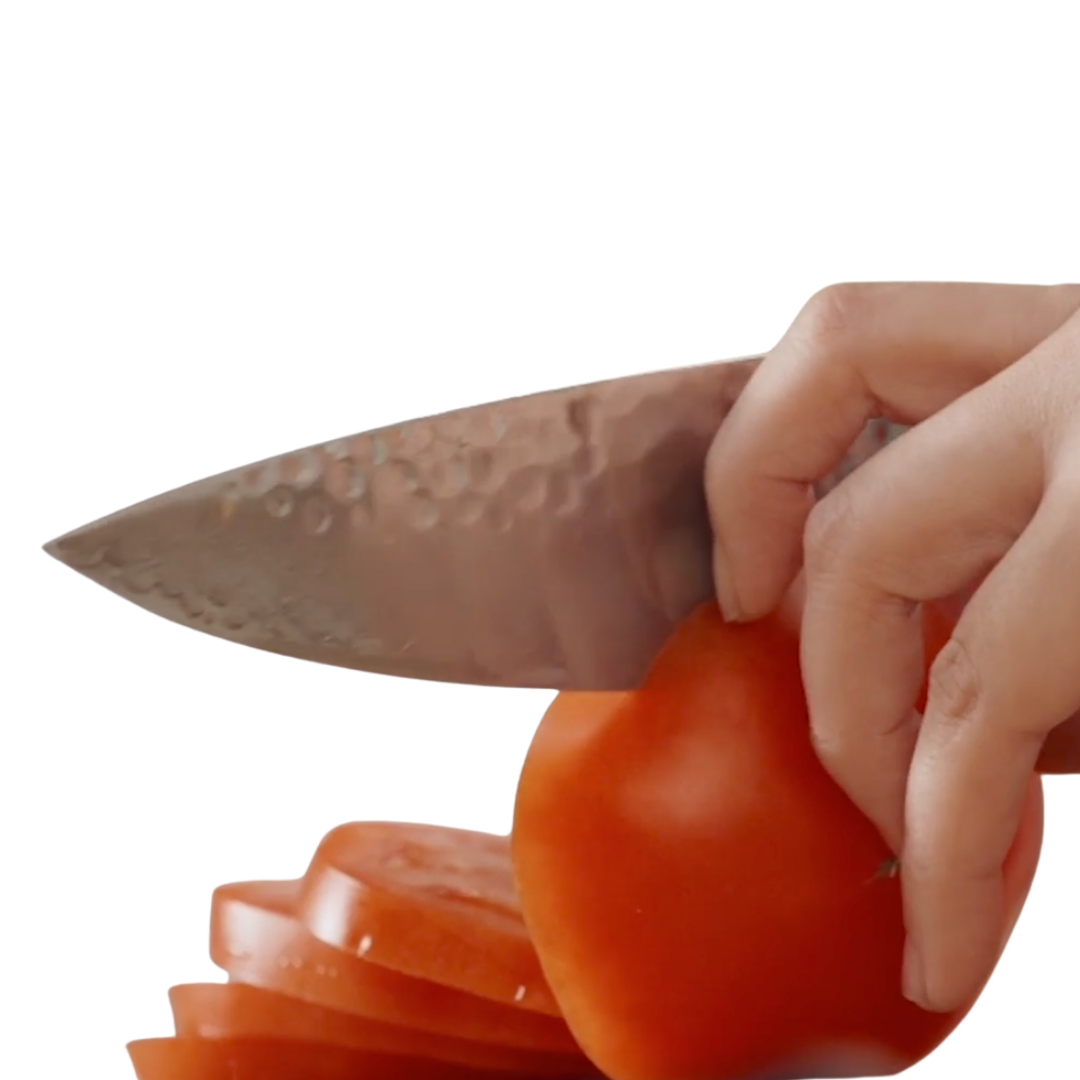
Our new course features over 100 lessons, 50+ recipes, downloadable guides, and more!
New Frozen Meals!
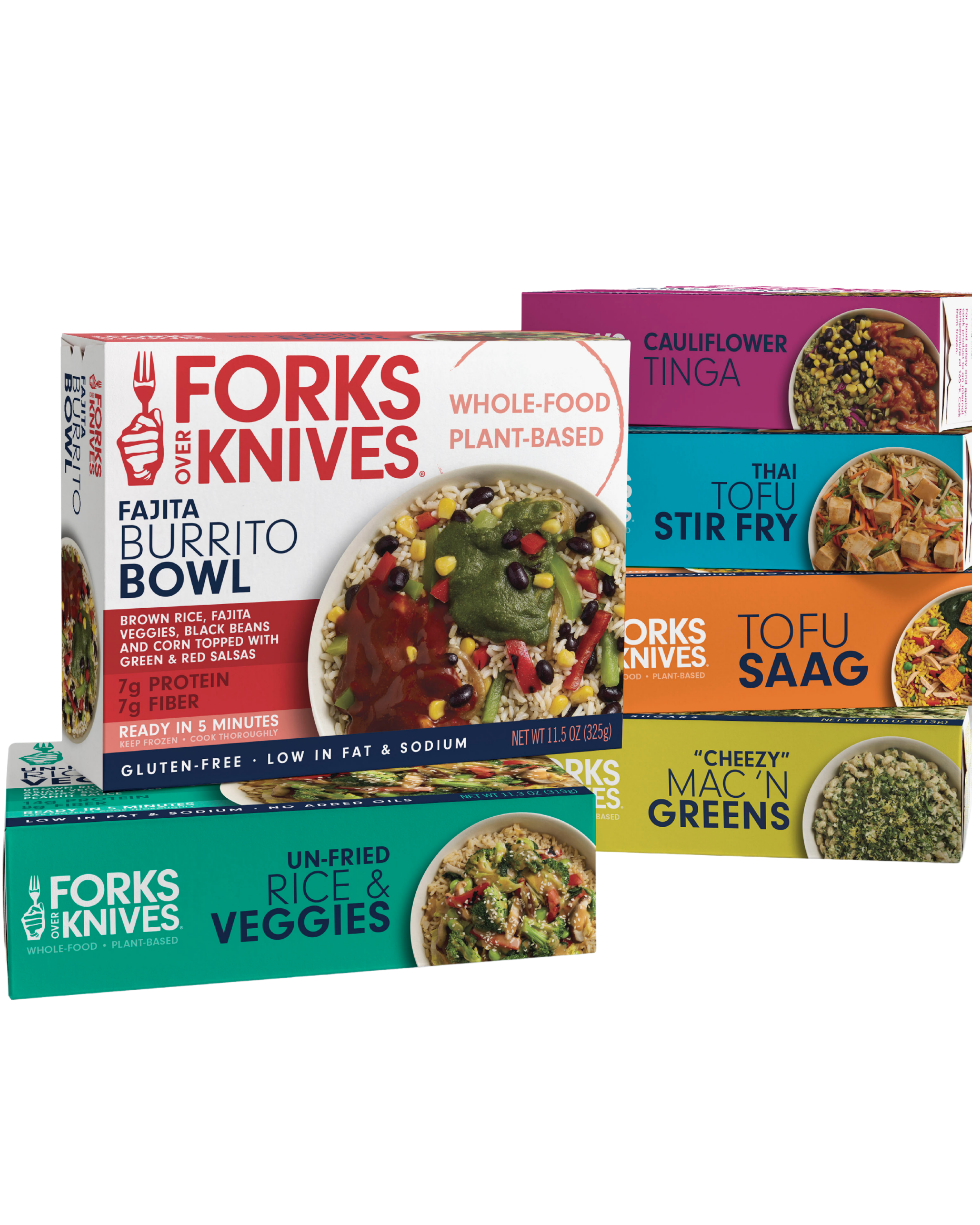
Introducing our new frozen meals: Doctor-recommended, chef-crafted, & ready in minutes.

